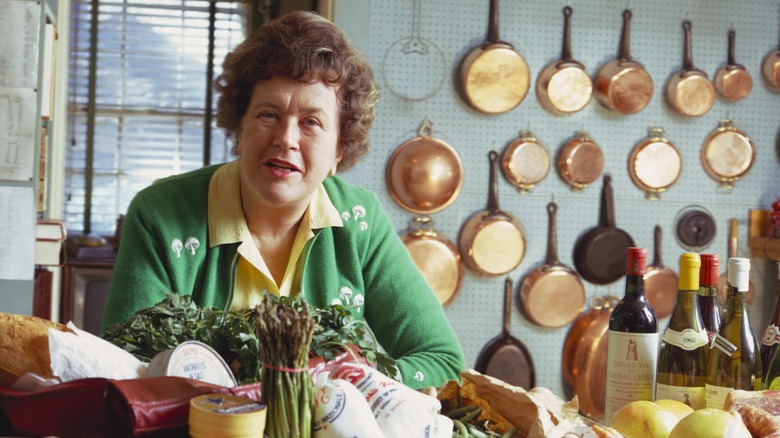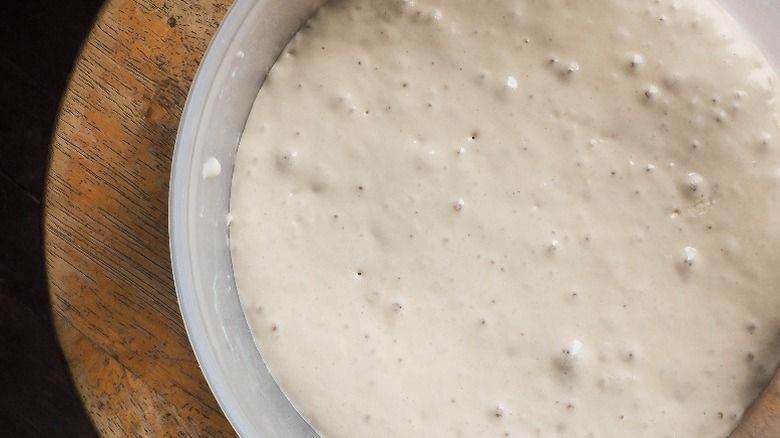Here's What Makes Julia Child's Sandwich Bread So Delicious
Unpopular opinion: Julia Child's white loaf bread recipe, and not her coq au vin, is her quintessential recipe. Coq au vin is what she makes for company. White sandwich bread is Julia Child at home, her slippered feet propped on an ottoman next to a roaring fire while she reads the paper and eats a midnight snack.
The recipe has a suitably French provenance. "Pain de mie," as it's known, is chock-full of enrichments like butter and milk (and a little sugar for the yeast to snack on). It has a soft crust and luxurious crumb and is often cooked in a Pullman loaf pan to stop it from crowning. But, the real reason it's so delicious is the preferment, which enhances the flavor, helps lend it that tight, soft crumb, and even increases its shelf life.
This particular preferment is known as a "poolish." To make a poolish, you whisk a one-to-one ratio of water to flour with a little yeast (about ½ teaspoon per cup of flour) into a bowl or jar. Cover it loosely so that air — and therefore wild yeast — can still get in, and let it sit on the counter for a few hours, up to 12. During that time, expect it to rise, sink back down, form bubbles, and generally create controlled chaos in the jar.
The benefits of a preferment
A preferment is any mixture of liquid, flour, yeast, and sometimes other ingredients that sits for a number of hours before going into your bread as its own ingredient. Using a preferment enhances the texture and flavor of a bread, but it also crucially makes the baked loaf last longer thanks to a more robust, yeast-created microbiome.
There are too many preferments with various names and processes in different languages to list them all. Common ones in American breadmaking include poolish, biga, levain, and sourdough starter. While they all affect flavor, texture, and longevity, they do so in different ways. It largely depends on your personal preferences whether your bread would benefit from a biga versus poolish or if you can substitute a levain for sourdough starter.
In Julia Child's sandwich bread, poolish gives the bread a subtly tangy, not-quite-sourdough-but-kinda flavor and strengthens the dough for a stronger but softer crumb. The recommended double bulk rise and single round of strengthening folds give the poolish's yeast even more time to go to work on the bread's structure and flavor, resulting in a loaf that's distinctly flavorful and strong enough to stand up to Child's famous croque monsieur.

